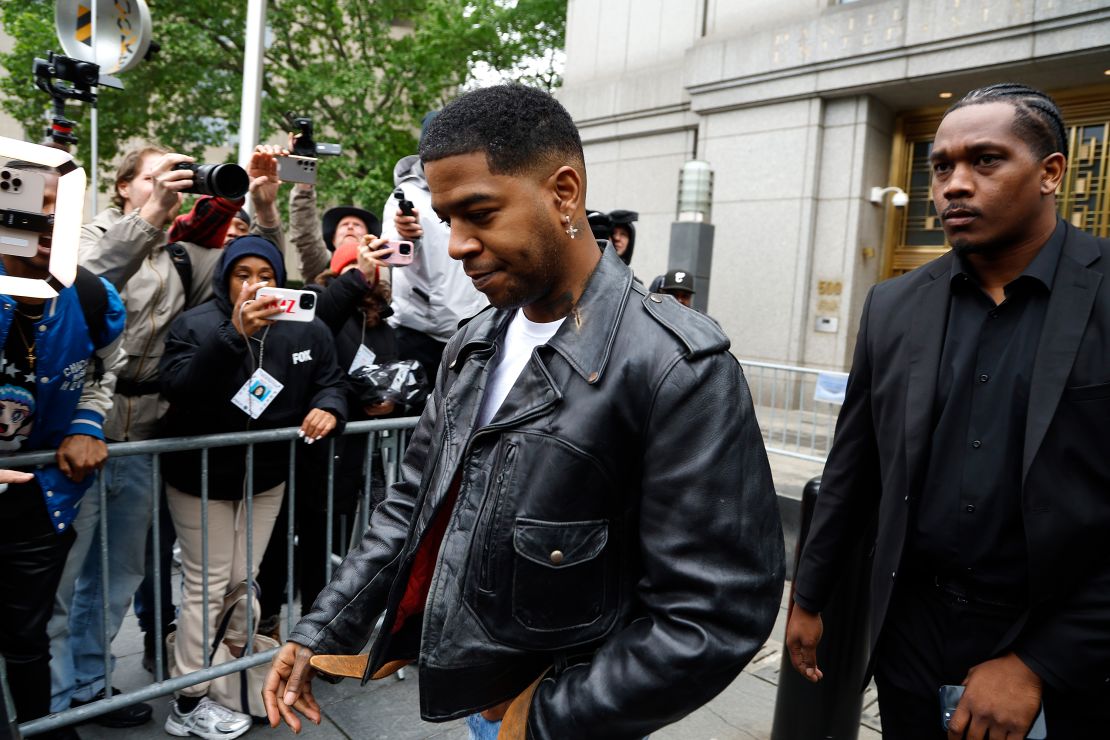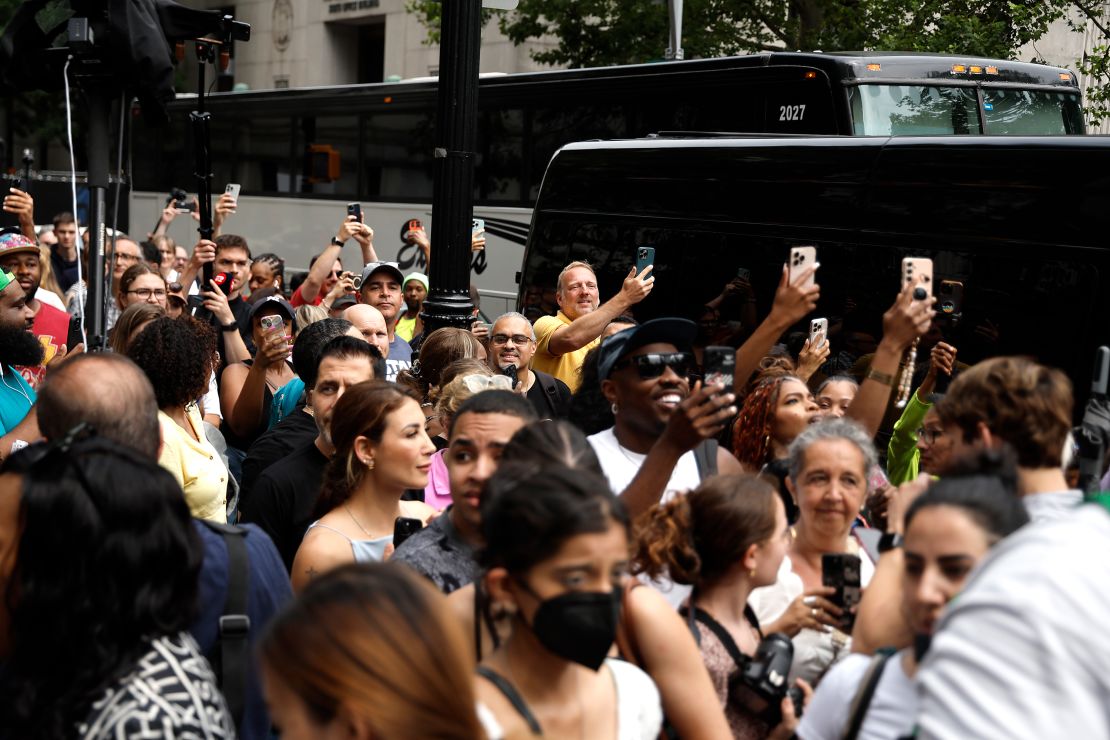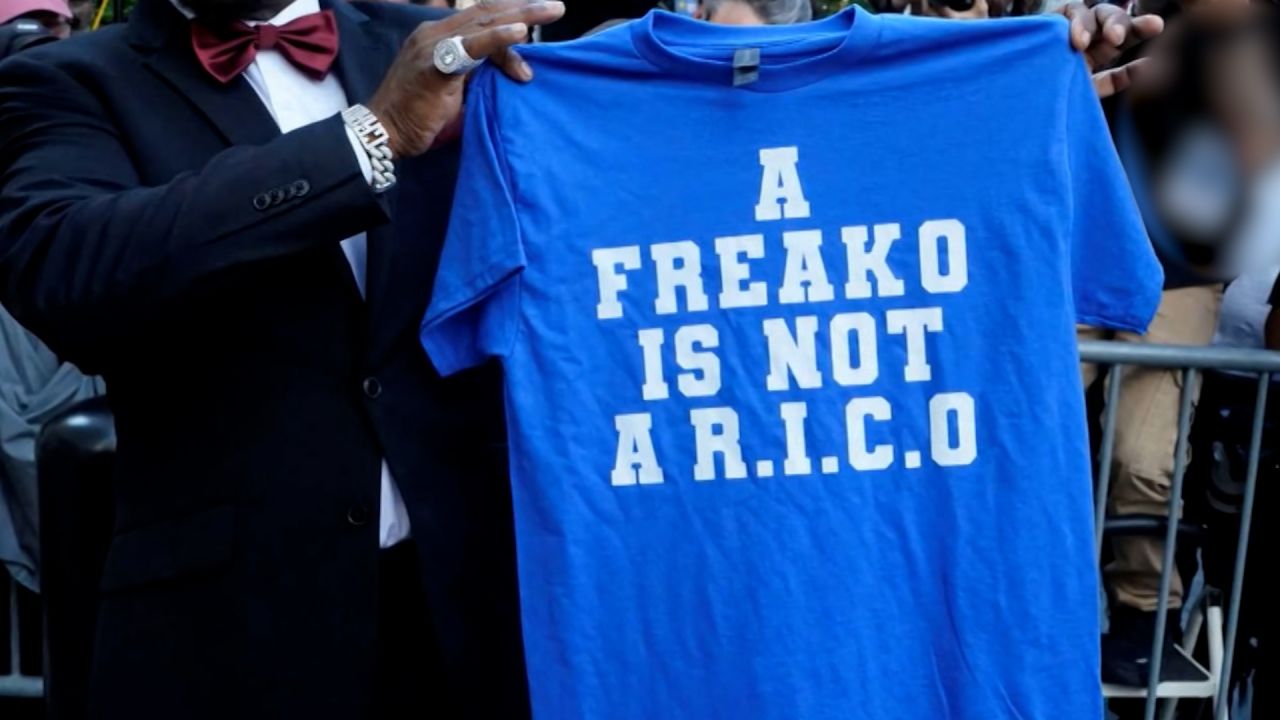Sean “Diddy” Combs dropped to his knees, placed his hands together, and bowed his head moments after the jury found him not guilty of the most serious criminal charges he faced, giving him a second chance at life.
He also turned to the jury box with his palms in the prayer-like position and nodded his head in gratitude to the 12 for their decision.
As the hip-hop mogul was led out of the courtroom on the 26th floor of the federal courthouse in lower Manhattan, two rows filled with supporters including his mother, sister, six adult children and friends erupted into applause.
The verdict was a rejection of the prosecution’s theory: that Combs ran a corrupt criminal enterprise designed to promote him and his sexual desires, including drugging women, physically abusing them and forcing them to have sex with male prostitutes.
Combs was convicted of two counts of transportation to engage in prostitution, felonies with maximum sentences of 10 years each in prison. But the jury of eight men and four women acquitted him of crimes that carried a maximum sentence of life in prison: racketeering conspiracy and sex trafficking of two former girlfriends, Cassie Ventura and a woman who testified under the pseudonym Jane. The sex trafficking charges also have a mandatory minimum prison sentence of 15 years.

The jury returned the verdict after 13 hours of deliberating, following more than six weeks of testimony, hundreds of text messages, and nearly an hour of sexually explicit videos. The trial delved into complexities of relationships and questions of consent and coercion.
Some witnesses were emotional, others provided comic relief, like Combs’ former stylist Deonte Nash, when they verbally jousted with defense lawyers. Rapper Kid Cudi, the only witness to arrive to court wearing a leather jacket and a cigarette dangling from his lip, testified about dating Ventura, a Molotov cocktail thrown through the roof of his Porsche, and a meeting with Combs who he described as a “Marvel super villan.” And Kanye West, a friend of Combs, caused a commotion when he showed up at the courthouse. He was denied entry to the courtroom and spent about five minutes watching the trial on a screen in an overflow room before leaving.

Jurors’ attention was rapt during the testimony of key witnesses, including Ventura, their heads bobbing from questioner to witness. At other times, later in the trial, some rested their eyes as text messages they had already seen were re-read into the record for hours.
Combs’ lawyers didn’t call one witness. The founder of Bad Boy Records, who played a big role in his own defense, passing Post-It notes to his attorney and huddling with them over key decisions, chose not to testify. When informing the judge of his decision, he used it as an opportunity to tell the judge he was doing an “excellent” job.
Over nine weeks a rhythm developed. Members of the media, public and social media streamers lined up outside of the courthouse in heavy rain, cold winds, and steamy temperatures to gain one of the limited seats inside the courtroom. Members of Combs family arrived in black sprinter vans and took their seats in the family section. Court security officers kept order, reminding everyone that talking was not allowed when court was in session.

Each morning Combs, his hair now gray, was led by US Marshals into the courtroom wearing a rotation of crew neck sweaters in shades of blue, gray and cream. He always looked for his family, flashed them a smile, a tap on the chest, or blew them a kiss.
Judge Arun Subramanian, an energetic erudite judge, set a tight schedule – the trial day started at 9 a.m. and ended at 3 p.m. most days. Initially he allowed only 30 minutes for lunch until prosecutors and the defense team pleaded for more time to eat.
Combs stacked his defense team with criminal lawyers from New York and Atlanta, some he has known for years, others he brought on just weeks before the trial began.
Marc Agnifilio and Teny Geragos led his defense. Appellate specialists Alexandra Shapiro and Jason Driscoll handled legal arguments over evidence, and Anna Estevao cross examined Ventura.
Weeks before the trial began Combs brought on Xavier Donaldson, a criminal defense lawyer in New York, and two trial attorneys from Atlanta, Brian Steel and Nicole Westmoreland, who recently represented rapper Young Thug and a co-defendant, respectfully, in a criminal racketeering trial.
The six-member all-female prosecution team was led by Maurene Comey, an experienced prosecutor of complex cases and the daughter of Jim Comey, the former FBI director. They dressed almost identically in black or blue suits, often with their hair tied back. From a distance it could be difficult to tell them apart.
Prosecutors were methodical presenting their case, tying the evidence together in a roadmap for the jury. They layered text messages with testimony and hotel invoices.
In his closing argument, Agnifilo mocked the prosecution case, congratulating agents with Homeland Security for seizing baby oil used during sexual encounters at Combs homes, drawing laughs from at least one juror.
“I guess it’s all worth it because they found the Astroglide. They found it in boxes, boxes of Astroglide taken off the streets,’ he said. “They found the baby oil,” he said, adding, “Way to go, fellas.”

After the verdict was read, prosecutors filed out of the courtroom. Combs’ lawyers stayed back, celebrating their partial win.
Chants of “Dream Team” began in the row of supporters, as his attorneys embraced each other.
Outside, some of Combs supporters sprayed baby oil on each other. Others wore t-shirts that said “A freako is not a R.I.C.O.”
Agniflio quipped to reporters, that he thought they took baby oil off the streets.
CNN’s Lauren del Valle and Nicki Brown contributed to this report.


